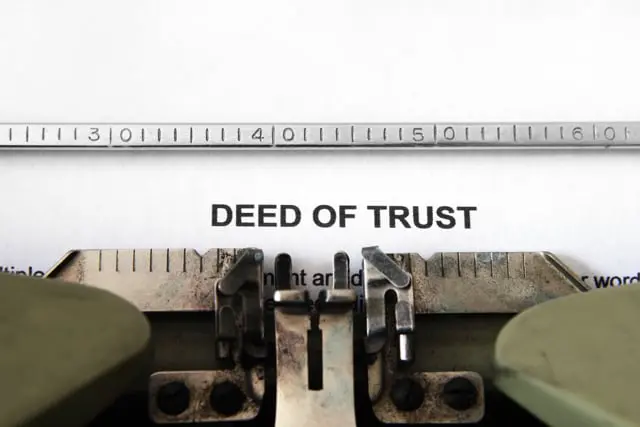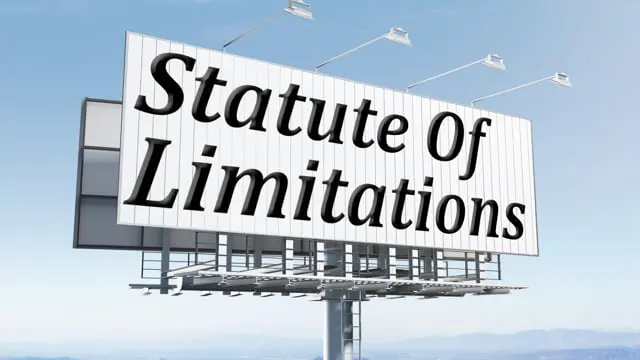El concepto de desacato penal stands as a cornerstone in the preservation of judicial authority and the integrity of legal proceedings. When individuals engage in conduct that undermines the dignity of the court or willfully disobeys its lawful mandates, they may find themselves subject to criminal contempt charges. This legal mechanism serves not only to maintain order within the courtroom but also to ensure that the administration of justice proceeds unimpeded by disruptive or disrespectful behavior.
Criminal contempt is distinct from its civil counterpart in both purpose and procedure. While civil contempt aims to coerce compliance with court orders, criminal contempt is punitive in nature, designed to punish past conduct that offends the court’s authority. This distinction is crucial, as it determines the rights afforded to the accused and the potential consequences they may face.
The power of courts to punish for criminal contempt is inherent and derives from the very nature of judicial institutions. This authority is codified in various statutes and rules, such as the Federal Rule of Criminal Procedure 42 and state laws like New York’s Judiciary Law §750. These legal frameworks provide the structure within which courts can exercise their contempt powers, ensuring that such powers are not wielded arbitrarily but in accordance with due process.
Acts that may constitute criminal contempt are diverse and can occur both within and outside the courtroom. Direct contempt refers to contemptuous acts committed in the immediate view and presence of the court. This might include outbursts during proceedings, insulting the judge, or creating disturbances that disrupt the court’s business. Indirect contempt, on the other hand, occurs outside the court’s direct purview but still interferes with its orders or proceedings. Examples of indirect contempt include violating a court order, attempting to influence jurors outside the courtroom, or publishing material that could prejudice a fair trial.
The consequences of criminal contempt can be severe. Courts have the authority to impose fines and even imprisonment as punishment for contemptuous behavior. The severity of the sanction often depends on the nature and gravity of the contemptuous act, as well as the impact it has on the judicial process. In some jurisdictions, the maximum fine for each act of criminal contempt is set at $1,000, with the possibility of up to 30 days of imprisonment. However, these penalties can accumulate if multiple instances of contempt are found.
One of the most significant aspects of criminal contempt proceedings is the heightened procedural protections afforded to the accused. Unlike in civil contempt cases, where the goal is remedial, criminal contempt charges trigger the full panoply of constitutional safeguards associated with criminal prosecutions. This includes the right to a trial by jury for serious contempt charges, the right to counsel, the presumption of innocence, and the requirement that guilt be proven beyond a reasonable doubt.
The process of adjudicating criminal contempt typically begins with the court issuing an order to show cause or a notice specifying the contemptuous conduct. The accused is then given an opportunity to respond and present a defense. In cases of direct contempt, where the contemptuous act occurs in the court’s presence, the judge may have the authority to summarily punish the offender. However, for indirect contempt or more serious direct contempt, a full hearing or trial is usually required.
The burden of proof in criminal contempt proceedings rests squarely on the prosecution or the court itself if it initiates the contempt action. To secure a conviction, it must be demonstrated beyond a reasonable doubt that the accused willfully engaged in contemptuous behavior. This willfulness requirement is crucial, as it distinguishes between intentional disrespect or disobedience and mere mistakes or misunderstandings.
Recent high-profile cases have brought the issue of criminal contempt into the public spotlight, particularly in the context of political figures and their interactions with the judicial system. These cases often involve complex questions about the boundaries of free speech, the extent of judicial authority, and the balance between maintaining courtroom decorum and protecting individual rights.
One notable example is the case involving former President Donald Trump during his New York criminal trial. The presiding judge found Trump in criminal contempt for violating a gag order that prohibited him from making public statements about jurors, witnesses, or potential witnesses involved in the case. This resulted in multiple fines of $1,000 for each violation, highlighting the court’s willingness to enforce its orders even against prominent public figures[1][9].
The Trump case also illustrates the challenges courts face in enforcing gag orders and contempt rulings in the age of social media. The instantaneous and wide-reaching nature of platforms like Truth Social, which Trump used to make some of the statements deemed contemptuous, presents new difficulties for courts in monitoring and controlling out-of-court statements that may influence proceedings.
Another aspect of criminal contempt that merits attention is its application to attorneys. Legal professionals, as officers of the court, are held to a high standard of conduct. When attorneys engage in behavior that the court deems contemptuous, it not only affects the immediate proceedings but can also have serious implications for their professional standing. Courts have shown a willingness to hold lawyers in contempt for a range of behaviors, from overly aggressive courtroom tactics to failing to appear for scheduled hearings.
The use of criminal contempt against attorneys raises important questions about the balance between zealous advocacy and respect for judicial authority. While lawyers have a duty to vigorously represent their clients, they must do so within the bounds of proper courtroom decorum and in compliance with court orders. The line between permissible advocacy and contemptuous behavior is not always clear, and tribunales must carefully consider the context and intent behind an attorney’s actions when contemplating contempt charges.
In some jurisdictions, the question of what constitutes contemptuous behavior has been the subject of legal debate and appellate review. For instance, the Pennsylvania Supreme Court recently agreed to consider whether name-calling a judge rises to the level of criminal contempt[10]. This case underscores the ongoing evolution of contempt law and the need for courts to adapt to changing social norms while maintaining the respect necessary for the effective administration of justice.
El poder de tribunales to punish for criminal contempt is not without its critics. Some argue that the broad discretion given to judges in this area can lead to abuse, particularly when the contemptuous behavior is directed at the judge personally. To address these concerns, many jurisdictions have implemented safeguards, such as requiring that contempt proceedings for personal attacks on a judge be heard by a different judicial officer.
Moreover, the intersection of criminal contempt with First Amendment rights has been a fertile ground for legal challenges. Courts must carefully balance the need to maintain order and respect for judicial proceedings against the constitutional protections afforded to free speech. This balancing act becomes particularly delicate in cases involving public figures or matters of significant public interest, where the line between legitimate criticism of the judicial process and contemptuous behavior may be blurred.
The use of criminal contempt in the context of jury selection and protection is another area of significant importance. Courts take very seriously any attempts to influence or intimidate jurors, whether through direct contact or through public statements. The gag order violated by Trump in his New York trial was specifically designed to prevent such influence, demonstrating the court’s commitment to ensuring a fair and impartial jury process[9].
Criminal contempt also plays a role in enforcing court orders related to discovery and the production of evidence. When parties willfully fail to comply with court-ordered discovery or engage in spoliation of evidence, they may face criminal contempt charges in addition to other sanctions. This application of contempt power serves to maintain the integrity of the fact-finding process and ensure that all parties have access to the information necessary to present their cases.
The international perspective on criminal contempt offers interesting comparisons. While many common law jurisdictions recognize similar contempt powers, civil law systems often handle disruptive behavior and non-compliance with court orders through different legal mechanisms. Understanding these differences can provide valuable insights into alternative approaches to maintaining judicial authority and courtroom order.
As technology continues to evolve, courts are grappling with new forms of potentially contemptuous behavior. The use of smartphones in courtrooms, unauthorized recordings of proceedings, and the rapid dissemination of information through social media all present challenges to traditional notions of contempt. Courts must adapt their rules and enforcement mechanisms to address these technological realities while preserving the fundamental principles underlying the contempt power.
The role of criminal contempt in ensuring compliance with court orders extends beyond the courtroom and into various areas of civil litigation. For example, in cases involving injunctions or restraining orders, the threat of criminal contempt serves as a powerful deterrent against violations. This is particularly important in areas such as domestic violence protection, where immediate and strict enforcement of court orders can be crucial for the safety of vulnerable individuals.
The use of criminal contempt in family law proceedings presents unique challenges. Courts must balance the need to enforce their orders, such as those related to child custody or support, with the recognition that family disputes often involve heightened emotions and complex interpersonal dynamics. Judges in these cases must exercise their contempt powers judiciously, considering the best interests of any children involved and the potential long-term impact on family relationships.
In the realm of intellectual property law, criminal contempt can be a valuable tool for enforcing injunctions against infringement. When a party continues to violate a court order prohibiting the use or sale of infringing products, criminal contempt charges can provide a more immediate and severe consequence than civil remedies alone. This application of contempt power helps to protect the rights of patent, trademark, and copyright holders by ensuring that court orders are taken seriously and promptly obeyed.
The intersection of criminal contempt with issues of mental health and competency raises important ethical and practical considerations. When a defendant’s contemptuous behavior may be the result of mental illness or cognitive impairment, courts must carefully assess the individual’s capacity to understand and comply with court orders. This may involve ordering psychological evaluations or considering alternative interventions that address the underlying issues while still maintaining the court’s authority.
The role of appellate review in criminal contempt cases is crucial for maintaining the balance between judicial discretion and the rights of the accused. Appellate courts play a vital role in defining the boundaries of contemptuous behavior and ensuring that contempt powers are exercised appropriately. Through their decisions, these courts help to establish guidelines and precedents that inform the application of contempt law across jurisdictions.
As society continues to grapple with issues of racial and economic justice, the application of criminal contempt powers has come under scrutiny for potential disparities in enforcement. Critics argue that contempt charges may be disproportionately applied to marginalized individuals or those without the resources to fully understand and comply with complex court orders. This has led to calls for greater transparency in contempt proceedings and the development of alternative approaches to addressing non-compliance and disruptive behavior.
The use of criminal contempt in the context of grand jury proceedings highlights the tension between the secrecy required for effective investigations and the rights of individuals called to testify. Witnesses who refuse to comply with grand jury subpoenas or who violate secrecy orders may face criminal contempt charges. This application of contempt power serves to protect the integrity of the grand jury process but must be balanced against concerns about potential prosecutorial overreach.
In conclusion, criminal contempt remains a powerful and necessary tool for maintaining the authority and effectiveness of the judicial system. Its application requires a delicate balance between preserving the dignity and order of court proceedings and protecting the rights of individuals. As legal systems continue to evolve, the concept of criminal contempt must adapt to new challenges while remaining true to its fundamental purpose of ensuring respect for the rule of law and the administration of justice.
Fuentes:
- https://lawhive.co.uk/knowledge-hub/litigation/overview-of-contempt-of-court-meaning-types-and-legal-implications/
- https://www.cherrylawoffice.com/contempt-of-court
- https://www.uscourts.gov/sites/default/files/suggestion_from_joshua_carback_-_contempt_proceedings-2_4.pdf
- https://www.bafirm.com/publication/federal-contempt-of-court/
- https://www.justsecurity.org/94878/why-trump-will-likely-be-held-in-contempt-and-what-then/
- https://www.billboard.com/pro/young-thug-lawyer-custody-contempt-of-court/
- https://www.nycourts.gov/LegacyPDFS/press/PDFs/DOcontempt_5-6-24FINAL.pdf
- https://www.law.cornell.edu/wex/contempt_of_court_criminal
- https://www.nbcnews.com/politics/donald-trump/judge-holds-trump-contempt-violating-gag-order-hush-money-trial-rcna149101
- https://www.law.com/thelegalintelligencer/2024/07/03/does-name-calling-a-judge-constitute-criminal-contempt-pa-justices-to-decide/








